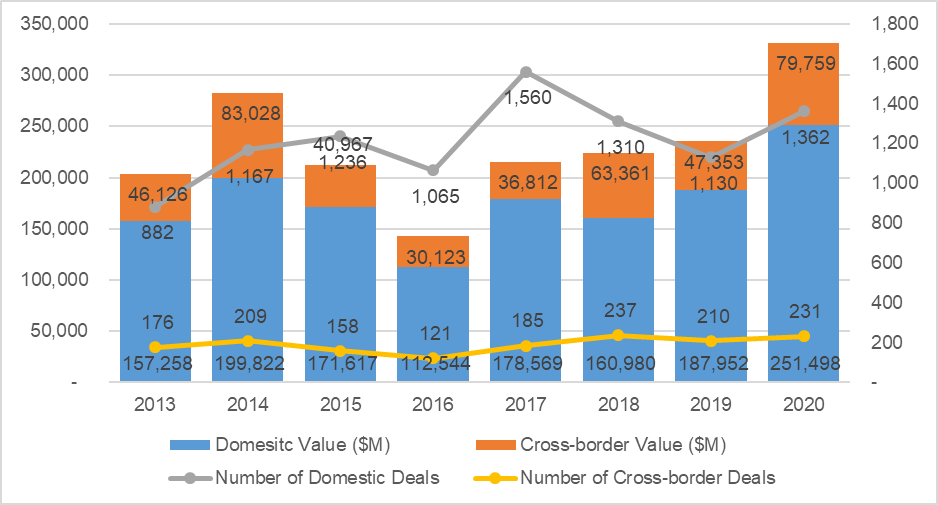Volatility returns
Global capital markets are seeing some major gyrations, but a short-lived correction appears unlikely to derail the underlying mega-trends around digitalisation and technological breakthroughs that span IT, finance, mobility and healthcare to name a few areas of interest to the global investment community.

6-month trajectory of NASDAQ overlayed with popular fintech and biotech indexes.
Let’s consider the macro context. The magnitude of financial market recovery following the initial COVID-related shocks in Q1/Q2 2020 took many by surprise, and the rally has recently culminated in speculative excesses. The Gamestop / “meme stock” mania of recent months raised enough eyebrows to trigger congressional hearings across the Atlantic.
Essential commodities such as steel and oil are on a tear, raising fears of inflationary pressures which could put central banks in an awkward position as they juggle their dual mandates – whether de jure or de facto – to support the economy all the while keeping inflation in check.
Underlying dynamics remain intact
It was not altogether surprising to see, then, a correction play out across richly valued, often early-stage tech stocks, but one should not lose sight of the bigger picture and the backdrop upon which this correction has occurred. 2020 and early 2021 saw record IPO activity in highly innovative and risky sectors such as biotech, and while Ant Financial’s mega-IPO fell flat last year, the Chinese flagship fintech could still list some time this year following the conclusion of a regulatory overhaul.

2020 saw record IPO activity. Source: Baker McKenzie
While markets are bound to correct following prolonged bullishness – a manifestation of reflexivity – the overall dynamic remains very favorable towards funding innovative, technology-orientated enterprises that are set to change the way large swaths of people and businesses operate.
Take the recent $1bn funding round of “buy now, pay later” fintech Klarna: with a user base of 90m and a private valuation that tops $30bn, the company is set to make strategic business development investments all the while eyeing an IPO within the next 2 years – hardly the sort of moves one would expect if a doomsday scenario was imminent.
At the same time, the increasing prudence that took hold in VC circles across the board following the pandemic, as described here, and expectations for market consolidation point towards concentration of private sector funding into a select few champions (real or perceived).
A crucial role for public sector investment
In recognition of the observation that creating opportunity for the greatest number of entrepreneurs possible is likely to support a broad and diversified economic recovery and re-shaping post-COVID, there exists a public sector rationale to lend further support to early stage investments. This rings particularly true for continental Europe which has historically lagged the US in terms of VC funding and which is finding a new sort of determination to integrate its capital markets and incentivise innovation on the continent following its “divorce” from the U.K. and the resulting uncertainties surrounding the City of London.
Public sector investment remains a vital tool at the service of de-risking of and incentivising private sector VC funding in Europe, as market failures (both systemic and regional / sectorial) persist and stand in stark contrast with high level policy objectives around innovation and societal adaptation. Targeted & qualified public sector investments utilise co-investment by design to achieve a multiplier effect and to foster the culture of calculated risk-taking required to get a VC ecosystem off the ground.
In that context we are delighted to share that the EIF has recently completed a 64% capital increase with a view on boosting its commitment to a “green and digital transformation of the EU economy”. Notably, the EIF plans to reinforce its PE and VC support activities and to leverage its resources in pursuit of the implementation of the new InvestEU programme and its $26bn envelope. The EIF’s chief executive describes the current business context & his organisation’s mission as follows:
The need for EIF support for businesses is now more pressing than ever. The capital increase gives us more firepower to support Europe’s businesses and to address the economic fallout of the COVID-19 crisis. Our mission to support SMEs across Europe remains crucial to stimulating growth, employment and innovation in Europe. In addition to alleviating the effects of the crisis, this capital increase will help us to better address Europe’s ambitions in the fields of digitalisation, innovation, social cohesion and green transformation.
It has been said that “optimism is true moral courage” and while plenty of macroeconomic, social and environmental challenges lie ahead, it is precisely our awareness of these challenges which obligate us to move ahead boldly and to support what will “get us there”: human ingenuity and ability.
Targeted, thoughtful yet decisive support of the venture capital ecosystem in Europe is a crucial contribution to this mission of human empowerment which we at LHoFT wholeheartedly support.
On that note – check out episode 2 of our Office Hours series with Pascal Bouvier, co-founder of Luxembourgish Fintech VC firm MiddleGame Ventures, for a practitioner’s perspective:
Author: Jérôme Verony – LHoFT Research and Strategy Associate
News from Linkedin

,
📍 London, UK | The LHoFT is excited to attend Europes largest Insurtech Conference in March 2025. Well renowned speakers from all over Europe share insights and learn from those top in the Industry. Join us there! LEARN MORE

,
📍 London, UK | The LHoFT is excited to attend Europes largest Insurtech Conference in March 2025. Well renowned speakers from all over Europe share insights and learn from those top in the Industry. Join us there! LEARN MORE





